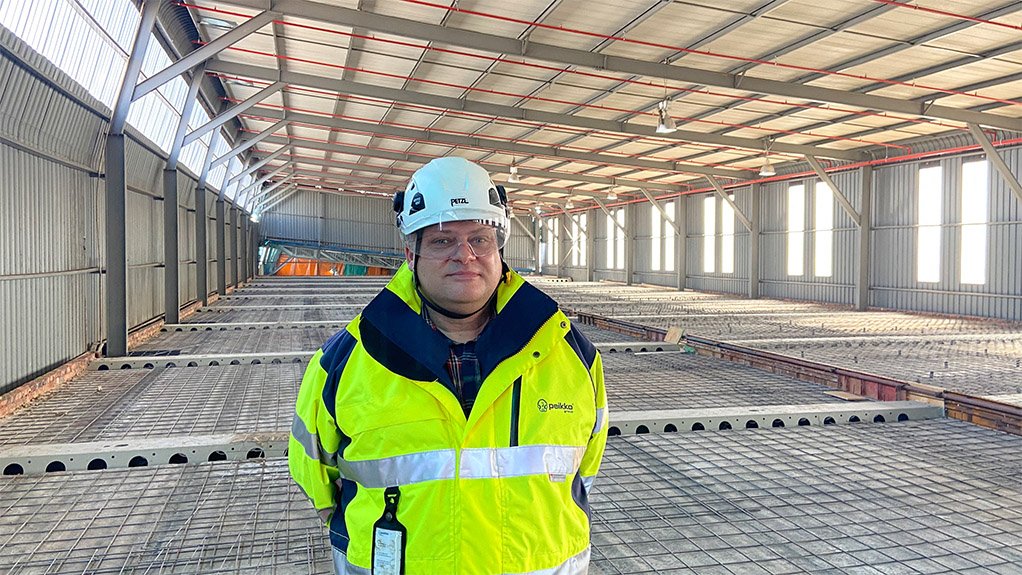Construction connection technology supplier Peikko South Africa has embarked on the second phase expansion of a production and warehousing facility for a food manufacturer in Johannesburg.
The first phase was successfully completed last year and the second phase is under way, Peikko South Africa MD Daniel Petrov tells Engineering News.
“Several containers have already been received at a precasting yard with installations on site expected to start this month.”
For Phase 2, Peikko South Africa will use its PCs corbels and Copra anchoring couplers for the first time in South Africa.
The PCs corbel is a modular corbel that can be used as support for composite steel-concrete beams, such as Peikko’s Deltabeam; reinforced concrete beams; and walls. It consists of a corbel plate, which is bolted to a machined steel column plate integrated into the column.
The column plate is cast into the column together with the main reinforcement, and the corbel plate is attached to the column only after the formwork is removed. The system enables as many beams to connect to the columns as the cross-section allows.
The PCs corbel is dimensioned so that the positioning of the corbel part, relative to the column plate, can be adjusted. After the corbel plate is bolted onto the column plate, the PCs corbel is ready for use, without any wedging or welding.
The standard PCs corbel models are designed to withstand vertical loads of up to 1 500 kN. These resistances are guaranteed when the PCs corbel supports steel, composite and concrete beams. In addition to vertical resistance, torsion resistance is also guaranteed by Peikko when the PCs corbel supports steel and composite beams.
The Copra anchoring coupler is a rebar anchor with female threads for bolted connections in precast concrete structures. Copra anchoring couplers transfer tensile, compression and shear forces through the connection during the erection of the structure and in the final stage of construction. The Copra coupler can be adapted to all types of concrete structures.
Hidden Copra anchoring couplers with removable threaded bars avoid the risk of protruding parts being damaged during construction.
“In addition to these technologies, we are using a top-down construction method instead of a traditional bottom-up method, which is unique,” says Petrov.
The facility is currently in use, which makes the top-down construction approach a necessity, as the food production lines below need to continue uninterrupted while expansion construction activities continue. Temporary support infrastructure, such as traditional scaffolding, can also not be used because of operations below having to continue.
Another benefit of using precast solutions is that smaller construction crews are on site during the Covid-19 pandemic, thereby reducing the risk of infections to the client who is simultaneously operating on site. It also means that the construction crew does not need to interact at all with the clients’ employees.
The Phase 2 expansion of the food manufacturer facility, which is worth about R16-million for Peikko South Africa, is expected to be completed in April, and will result in the addition of about 5 000 m2 to the existing facility.
Edited by: Zandile Mavuso
Creamer Media Senior Deputy Editor: Features
EMAIL THIS ARTICLE SAVE THIS ARTICLE
ARTICLE ENQUIRY
To subscribe email subscriptions@creamermedia.co.za or click here
To advertise email advertising@creamermedia.co.za or click here













